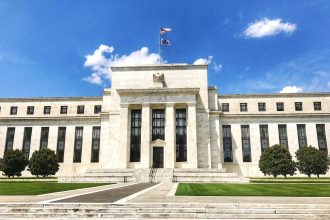OBSERVATIONS FROM THE FINTECH SNARK TANK
A recent Wall Street Journal nailed the title—Main Street Banking Model Is Being Squeezed—but missed the mark on the cause. Commenting on the Q1 2024 profit declines for many community and regional (i.e., “Main Street”) banks:
“The results underscore the uneven toll that two years of higher interest rates have taken on regional banks, which tend to have plain-vanilla businesses taking in deposits and loan. The model has become less profitable because of the pressure to pay up on deposits.”
The article suggests that the “squeeze” is due to continued high interest rates, a “particular problem for banks without much diversity and scale,” and goes on to say that “banks are still under scrutiny from regulators, [and] many have been in pullback mode in anticipation of potentially stricter capital rules.”
The Squeeze Has Been a Long Time in the Making
The “main street” banking model is being squeezed—but it’s a squeeze that has been years in the making and is only exacerbated by current economic conditions. The core of the squeeze comes from:
1) The redefinition of community. It’s hard for bankers to see and accept the long-term decline of geography as “community.” National providers—banks, fintechs (e.g., Paypal, Square,), and even merchants—are chipping into (geographically-based) community institutions’ payments, lending, and banking business.
2) Generational changes. When Baby Boomers graduated college, their question was “which bank should I open an account with?” When Millennials graduated, their question was “do I need a checking account?” When Gen Z graduated, the question was “what’s a checking account?” This is why digital banks and fintechs—led by Chime and PayPal—captured nearly half of all new “checking” accounts opened so far in 2023. The kids are looking for an easy—and free—way to make payments. The generational changes are deeper than that: Baby Boomers were “W-2 Nine-to-Fivers.” Gen Zers are gig workers, creators, influencers, and side hustlers.
3) Product pricing. There’s a value disconnect in banking. Many consumers don’t feel they get the value they think they should get for the price they pay for financial products. Too much of banks’ non-interest income comes from punitive fees. The CFPB has the teeth to address this imbalance and while it’s “fixes” often backfire and harm, not protect, consumers, the bureau is addressing the core of the problem.
In addition, there’s an organizational issue buried in the pricing challenge. Do bankers realize that banking is the only industry on the planet where product pricing is done by the finance department and not the marketing department? The inability for banks to effectively do relationship- and market-driven pricing put an undue burden on customer acquisition and retention efforts.
4) The economics of talent. Banks and credit unions lost a lot of good people after the pandemic. Replacing them has been hard, and it isn’t getting easier for a lot of reasons including: 1) Shortage of people with the kind of technology/banking skills that banks need, and 2) Banks can’t offer an attractive economic package for people.
Case in point: A banker recently told me that he’s found former waiters and waitresses make great branch staff because they’ve developed good interpersonal skills, know how to ask for the up-sell, and understand time constraints. The problems, however, are two-fold: 1) many of them can make more money waiting tables than they can working for a bank, and 2) banks need digital marketing and sales skills, not human ones.
5) The government. The WSJ article cites banks’ pullback “in anticipation of potentially stricter capital rules.” That’s just the tip of the iceberg. The current administration has, systematically, been shaping the industry to make it more difficult for mid-size institutions to succeed by limiting fees for overdraft, interchange, late payments, and more.
A study titled The Web of Financial Regulation found that following 2023’s bank failures, members of Congress proposed at least 28 separate bills, and banking agencies issued reports suggesting novel regulatory measures. The author concluded:
“Most of those plans focused on pet projects or individual areas of reform, instead of examining the overarching regulatory scheme. Such a blinkered approach to policymaking does not account for the complexity, variety, and interconnectedness of the world of financial regulation.”
It should be no surprise, then, that in Cornerstone Advisors’ 2024 What’s Going On In Banking study, 40% of community bank CEOs said they see the US government as a “significant” threat to the banking industry.
A Republican administration in 2025 might alleviate some of the regulatory pressure, but—for the longer term—the US banking industry should be prepared for future administrations to pick up the banking squeeze.
‘Small Business’ Will Save Community Banking
Competing in the retail banking space has gotten a lot harder over the past 10 years and will continue to get harder—and more expensive. That doesn’t mean the death of community banks or community banking (expanding the scope to credit unions).
The savior? Small businesses—and the redefinition of “small business.”
Two points of clarification are needed here because it’s not simply about:
- Small business “lending” or small business “banking.” Many community bankers will see the section header and think “we’re already in small business banking.” Many are. But many are really in small business lending, while others provide small business banking services. Small businesses do need to borrow and bank, but what they need—and want help with—is help managing their businesses.
- The traditional small business. Many Gen Zers are gig workers, creators, influencers, and side hustlers—in effect, small business owners. Baby boomers aren’t retiring—they’re quitting their W-2 jobs and becoming independent contractors—i.e., small businesses. The line between “individual” and “business” has become blurred. Community-based financial institutions have been slow to respond to this blurring.
The problem with talking about “small business” is that there’s no common definition for who or what fits under that label. For many banks, small business are established companies with more than $10 million (or more) in revenue.
That definition leaves out a lot of companies (or people) who don’t have that much revenue, but aren’t really traditional consumers—but have unique lending, banking, and money management needs.
These entities in the consumer/business spectrum—underserved from a lending, banking, and money management perspective—will save community banking from extinction. Getting there won’t be easy. It will require banks to:
- Become more tightly integrated into small businesses’ day-to-day operations. A Cornerstone Advisors study found that many small businesses’ accounting and payments functions are manual and labor- intensive. A lack of integration across functions and a shortage of useful management information plagues small businesses’ accounting, invoicing, bill payment, and payment acceptance processes—and roughly 60% of them are interested in obtaining accounting and payments services from a bank.
- Reinvent their checking and payments offerings. Two-thirds of small businesses say they’re looking for new banking relationships, and many of them say the reason why is the desire to get better business checking account product features and capabilities. This will entail better cybersecurity protection, better business identity theft protection, and better (i.e., customized) cash flow management tools.
Read the full article here
















